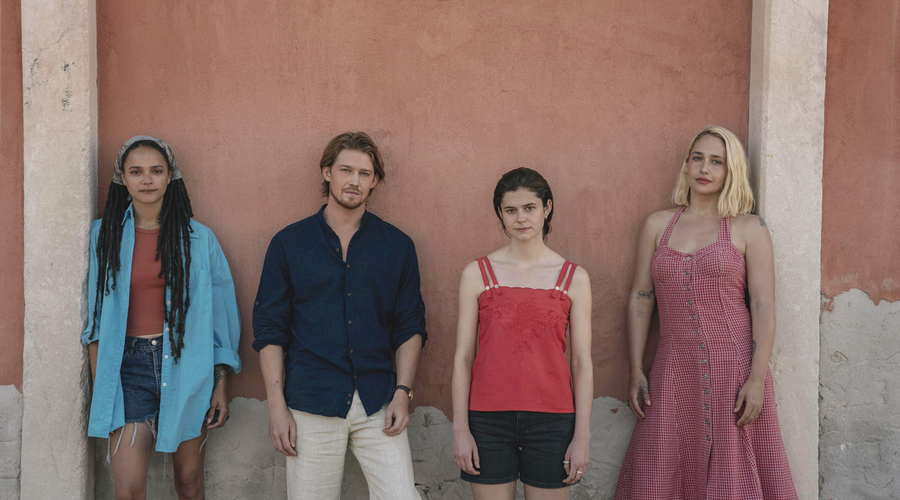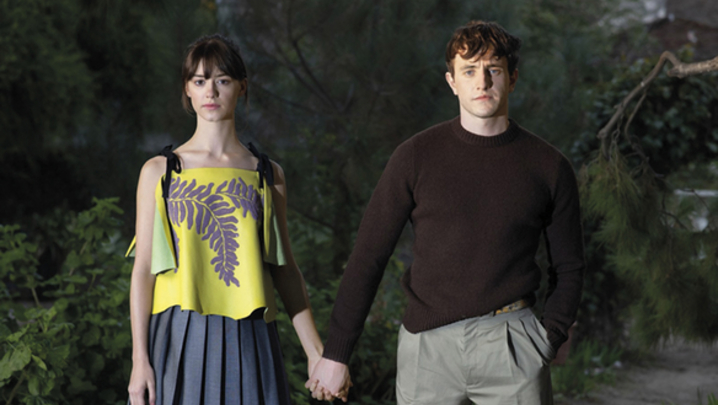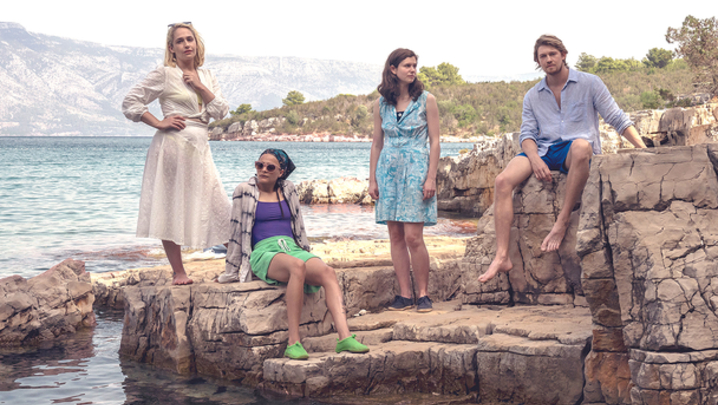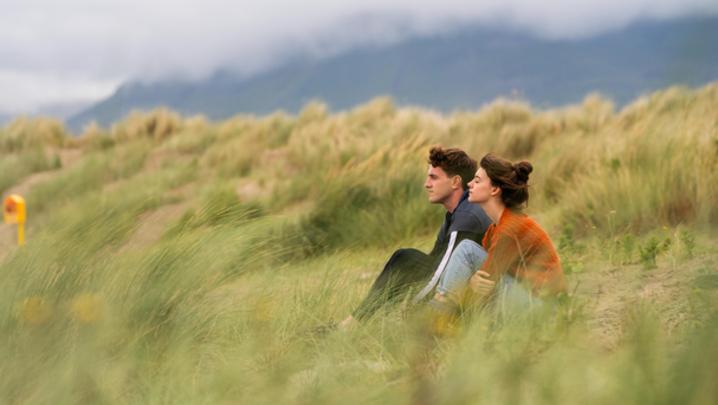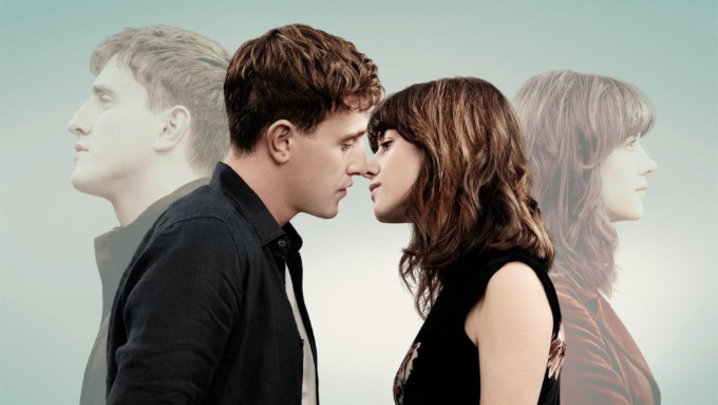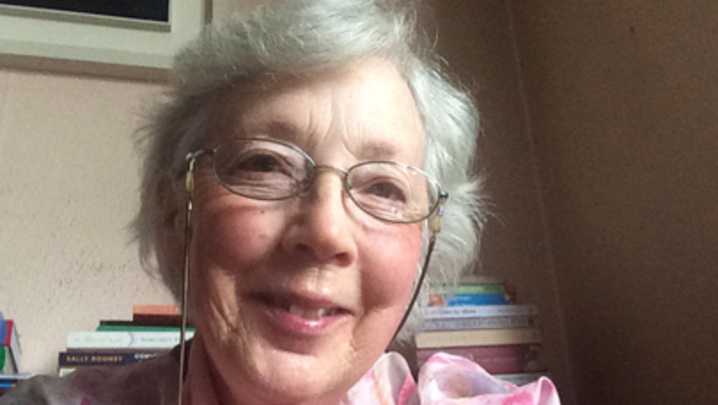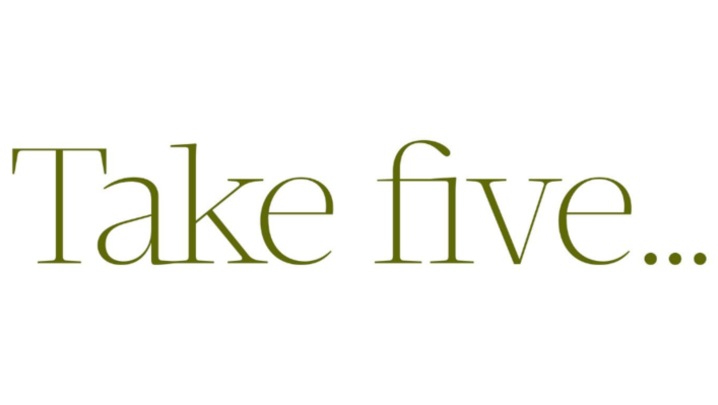A lot is riding on the new Sally Rooney adaptation Conversations with Friends. Matthew Bell uncovers the project’s complex genesis.
Normal People was the TV hit of the first Covid lockdown, a comfort blanket of a series that offered respite from what was a new and terrifying virus.
Viewers tuned into Marianne and Connell’s love story, adapted from Sally Rooney’s second book, in huge numbers. It became BBC Three’s biggest-ever series and the iPlayer’s most popular show of 2020, racking up more than 60 million streams in just eight months. Worldwide, it won countless awards.
Now, two years later, the same producer that made Normal People, Dublin’s Element Pictures, is bringing Rooney’s debut novel, Conversations with Friends, to screen this month. No pressure, then.
The success of Normal People was “genuinely a complete surprise”, recalls executive producer Ed Guiney. “And it was very nice as well – it was the spring of the first lockdown…. If you remember, at that time, we didn’t know the world wasn’t coming to an end – it was crazy!” Arguably, times are just as gloomy now, with the world watching appalled at Russia’s invasion of Ukraine and fearing where Putin’s mania may lead next.
“We’ll be here to hold your hands for all future global disasters,” chips in Lenny Abrahamson, lead director and executive producer of both Normal People and Conversations with Friends.
“We knew [Normal People] was very good, but I don’t think any of us would have predicted that a mass television audience would become hooked on it in that way.”
Guiney admits that hits such as Normal People “don’t happen very often”, although when they do, he says, “they’re a complete joy – you [need to] just relish and cherish it. But neither can you expect that everything is going to work [as well], either.”
Quite. But has Normal People’s success raised expectations of Conversations with Friends to unrealistic levels? Abrahamson replies: “We learned a lot from doing Normal People, a way of working that suits this kind of material… and we know there’s an audience that’s really open to low-key storytelling in television.”
Element Pictures had been developing Conversations with Friends as a movie with the then-director of BBC Film, Rose Garnett, but, says Guiney: “Through making Normal People, I think we realised the way to adapt Conversations was as a series.”
Abrahamson continues: “We hadn’t cracked the film script and it just seemed to make sense – those two books [share] an immersive character development and interpersonal relationships that work so well on television. For a film, you have to conflate and concentrate – and then I don’t think you do the characters justice.
“People [have an] ability to watch [TV] novelistically. If you can pull [them] in and they connect with the characters, you can take them on a very intricate journey [that] holds their attention. That was the thing that most surprised all of us about Normal People.”
Guiney adds: “If we’d made Normal People in exactly the same way… but made a film, it would have been a festival darling, played some art houses, got some nice reviews – and would have made a much smaller impact, even on its TV broadcast.
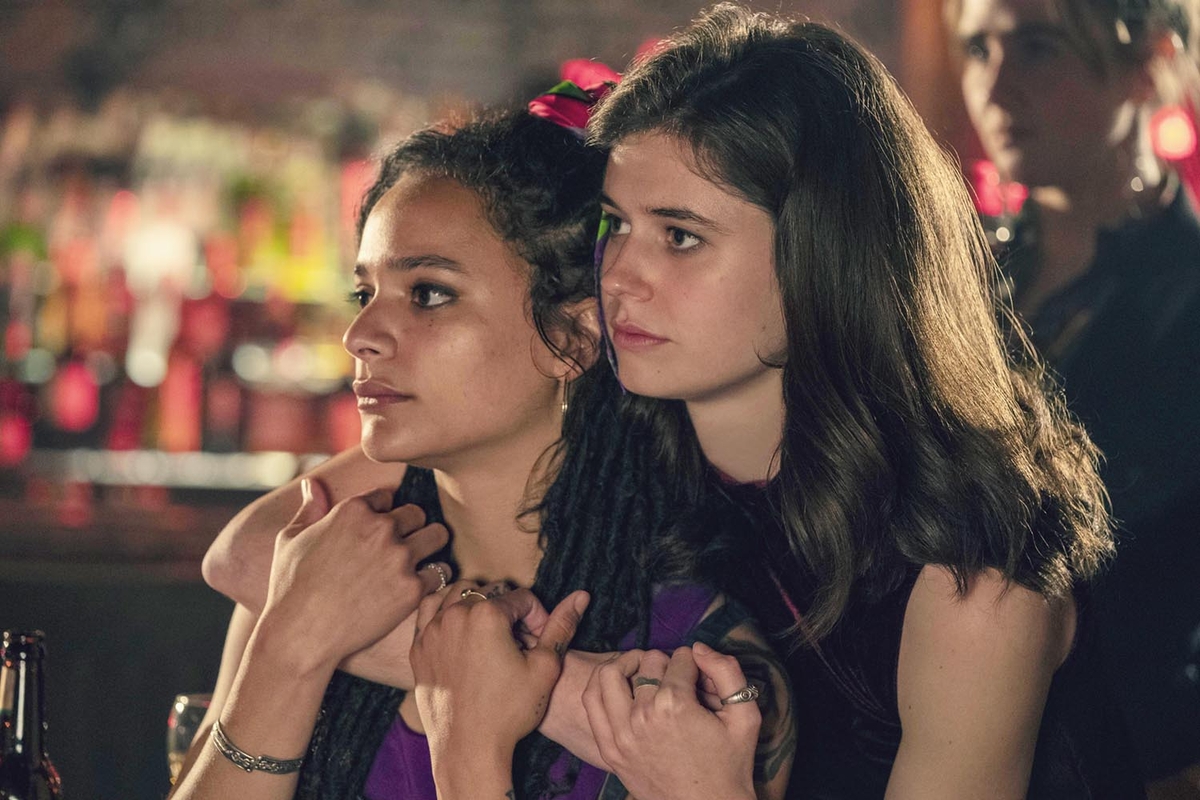
“It’s weird that you can bring all of those sensibilities and instincts of an art-house film-maker to a piece of television and it becomes a mainstream hit.”
As novels, Normal People and Conversations with Friends share some characteristics: both mine relationships and are replete with dialogue, real and internal. But, explains Abrahamson, Normal People “is a love story, pure and simple”. Conversations with Friends is a more complex book, set in the wake of the 2008 economic crisis – “what now feels like the quaint, happy time of a global financial crash,” he says, wryly.
You could describe the plot, not entirely inaccurately, as a ménage à quatre: Frances and Bobbi, once girlfriends, are now best friends performing at poetry nights in Dublin. Married couple Melissa, a photographer, and Nick, an actor, are a decade older than the two students they befriend. But, while Bobbi and Melissa flirt, Frances and Nick embark on a secret affair.
Frances, the show’s key role, is played by newcomer Alison Oliver, who graduated from The Lir National Academy of Dramatic Art in Dublin in 2020. “We saw Alison early on,” recalls Guiney. “Like Paul [Mescal] from Normal People, she just popped [out] from a bunch of tapes. It was a very quiet reading, very confident in its low-keyness – it wasn’t showy at all.”
Abrahamson takes up the story: “We then read her with other people because we were also looking at ensemble [scenes]. We knew we were going to cast her long before she knew, like Paul.”
Joe Alwyn (Nick) was also quickly cast in a process overseen (as with Normal People) by casting director Louise Kiely. Alwyn had appeared alongside Olivia Colman in Yorgos Lanthimos’s award-winning film The Favourite, and in Joanna Hogg’s acclaimed The Souvenir Part II, both co-produced by Guiney.
The principal cast is completed by Texas-born actor Sasha Lane (Star in American Honey) playing Bobbi and Jemima Kirke (head teacher Hope Haddon in Sex Education) as Melissa.
Alice Birch, who worked on Normal People, returns with a new team of adapters: Mark O’Halloran, Meadhbh McHugh and Susan Soon He Stanton.
Abrahamson directed the first five and final two episodes of the series, which was largely shot in Belfast and Dublin. Croatia, with a lower incidence of Covid, stood in for France as the book’s holiday destination.
Second director Leanne Welham made the highly regarded 2018 feature Pili, about a Tanzanian woman struggling to feed her children, much admired by Abrahamson and Guiney.
“I was very excited as a big fan of Rooney’s novels and I actually preferred Conversations with Friends to Normal People,” Welham says. “The story, characters and relationships in Conversations feel a bit more messy and complicated, which drew me to it. I really like stories that explore those difficult areas between people.
“There’s a lot going on and, for me as a director, it was really interesting to be able to mine those relationships.”
Welham is a huge admirer of Abrahamson’s work; in particular, his disturbing coming-of-age film What Richard Did. “He brings a nuance and subtlety to what he does, which is in line with the way I approach things,” she says.
She explains why she thinks Conversations with Friends will echo with audiences: “When I read this book, I wished I had [been able to] read it when I was younger. Frances is a character who I really saw myself in, certainly. She doesn’t have all the answers and she makes mistakes.
“It would have been fascinating for me to see – and maybe helpful to understand – that I wasn’t the only person… not knowing what the hell I was doing when I was 21. So, I think these characters will resonate with people.
“But you don’t have to have been a 21-year-old woman to understand what Frances is going through, [it’s] a very human show about human emotions and anyone can relate to that.”
Will Conversations with Friends match Normal People’s success? “Normal People came out [during lockdown] where, arguably, people wanted more intimacy,” says Abrahamson. “When we come out, God knows what state things are going to be in.”
Conversations with Friends airs on Sunday 15 May on BBC Three, with all 12 episodes available on BBC iPlayer.

